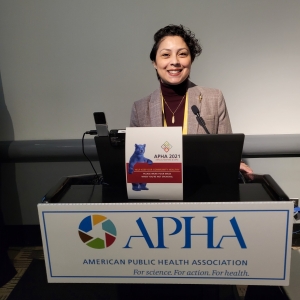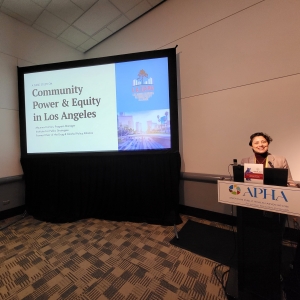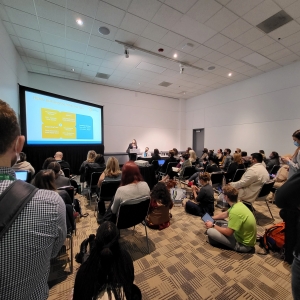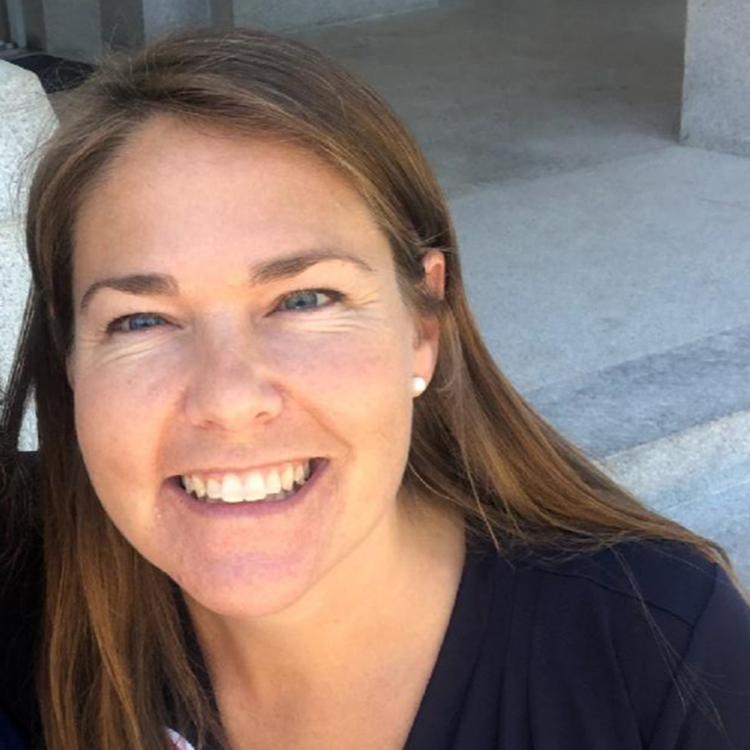Institute for Public Strategies to Present Community Power and Equity Case Study at APHA Annual Conference
SAN DIEGO, August 2021 – An Institute for Public Strategies (IPS) program manager has been selected to present this year on health inequities in communities of color at the prestigious American Public Health Association (APHA) Annual Meeting and Expo in Denver.
The APHA event is the largest and most influential gathering of public health professionals, with this year’s theme of “Creating the Healthiest Nation: Strengthening Social Connectedness.” Tens of thousands of participants will attend online and in Denver in October 2021. IPS Program Manager Maurina Cintron of Los Angeles County will present a case study on community power and equity with a focus on the Los Angeles Drug and Alcohol Policy Alliance (LA DAPA), a city and countywide group of public health professionals, community members and 30 organizations working to implement policies that reduce substance-related harms.
The group was founded in 2012 to empower communities of color in the City of L.A. to reduce dramatic health inequities in their neighborhoods. For generations, people of color in L.A. have been held back by laws limiting their potential in education, employment, politics, housing, and health.
“I will showcase how LA DAPA, with our community partners and collaborators, was able to quickly rally around conditions that were creating alcohol-related harm, such as the over-proliferation of alcohol retailers in historically disadvantaged communities of color,” Cintron said.
This session will provide a roadmap for integrating social justice into coalition work. Los Angeles’ retail alcohol environment has contributed to higher rates of crime and violence in low-income areas because of historic, entrenched zoning practices. Utilizing a framework that combined extensive assessment, intentional organizing, media, and targeted advocacy with policymakers, LA DAPA has emerged as a powerful, thriving, community-based organization that is affecting systemic change.
IPS works alongside communities to build power, challenge systems of inequity, protect health and improve quality of life. IPS has a vision for safe, secure, vibrant and healthy communities where everyone can thrive.
###
Contact:
Paul Levikow
Institute for Public Strategies
(619) 476-9100 ext. 112
plevikow@publicstrategies.org













